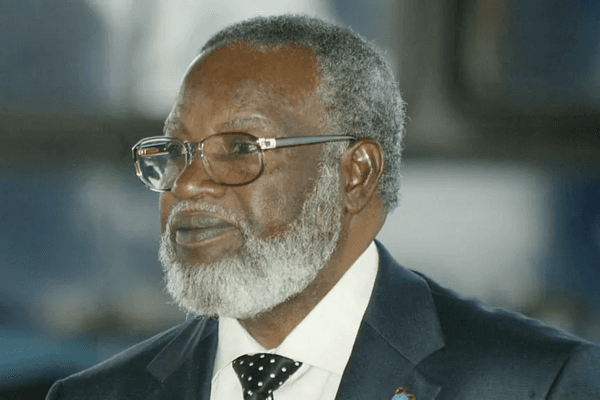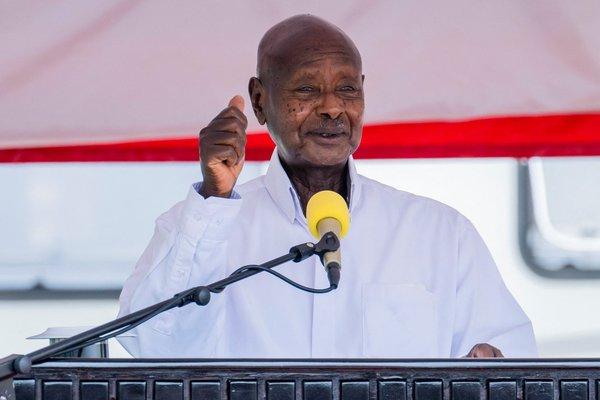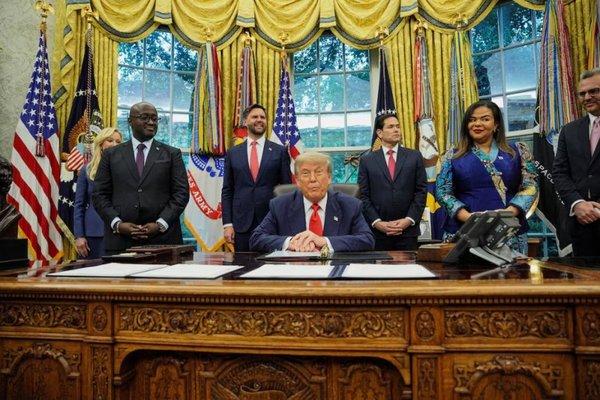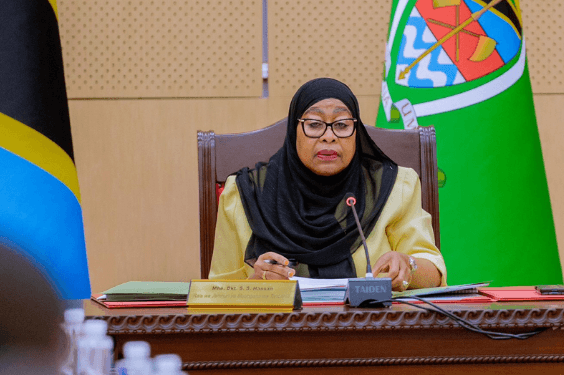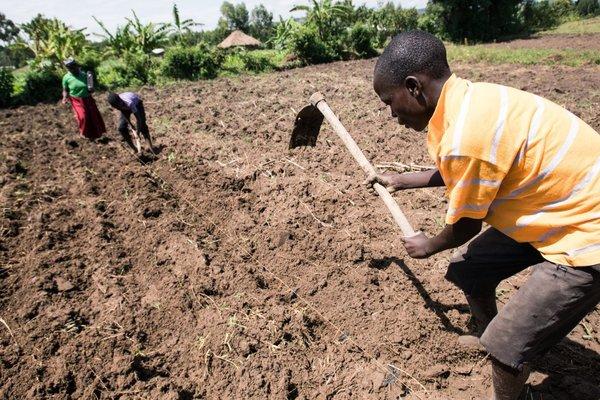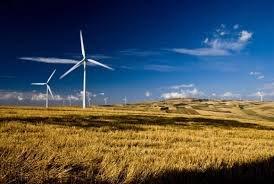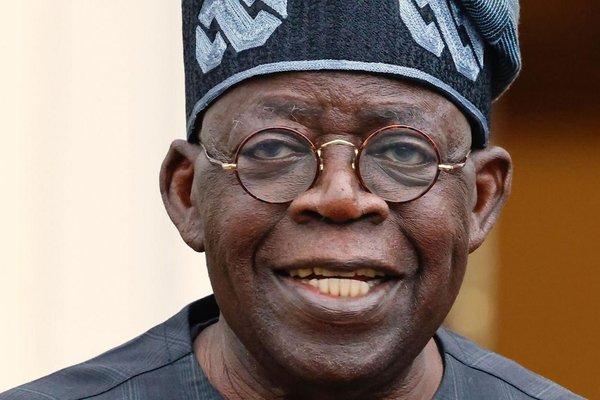Burundi
Burundi, officially called the Republic of Burundi and also the "Heart of Africa", is a landlocked country in East Africa. It is located in the Great Rift Valley at the junction between the African Great Lakes region and Southeast Africa, with a population of over 14 million people. It is bordered by Rwanda to the north, Tanzania to the east and southeast, and the Democratic Republic of the Congo to the west; Lake Tanganyika lies along its southwestern border. The political capital city is Gitega and the economic capital city is Bujumbura.

East Africa

27,834 km2

GMT+2

14.2 million

Kirundi, French, English, Swahili

Christianity and Islam

Burundian Franc

President Pierre Nkurunziza

Brief
Burundi is a small, landlocked East African nation with a deep historical legacy shaped by the Twa, Hutu, and Tutsi peoples. Once an independent kingdom, it became a German colony in 1885 and later a Belgian territory after World War I, administered alongside Rwanda as Rwanda-Urundi. Gaining independence in 1962, Burundi initially retained a monarchy, which was abolished in 1966 following a military coup that led to Tutsi-dominated rule. The country endured severe ethnic violence, including the 1972 Hutu genocide. A civil war erupted after the 1993 assassination of the first democratically elected Hutu president, Melchior Ndadaye. Peace was eventually pursued through the 2000 Arusha Agreement and the 2005 constitution. Since then, the CNDD–FDD, a Hutu-led party, has maintained power amid allegations of authoritarianism and human rights violations.
Burundi remains predominantly rural and economically underdeveloped, with over 80% of its population being Hutu, and Kirundi as the most widely spoken language. The economy heavily depends on subsistence farming, but faces environmental threats such as deforestation and soil erosion. The country ranks as the poorest globally by nominal GDP per capita and struggles with poverty, corruption, low literacy, and limited infrastructure. Despite being ranked the least happy country in 2018, Burundi continues to engage internationally as a member of organizations like the African Union, United Nations, and East African Community. It is a nation with a rich cultural heritage and resilient citizens, striving to overcome persistent socio-economic and political challenges.
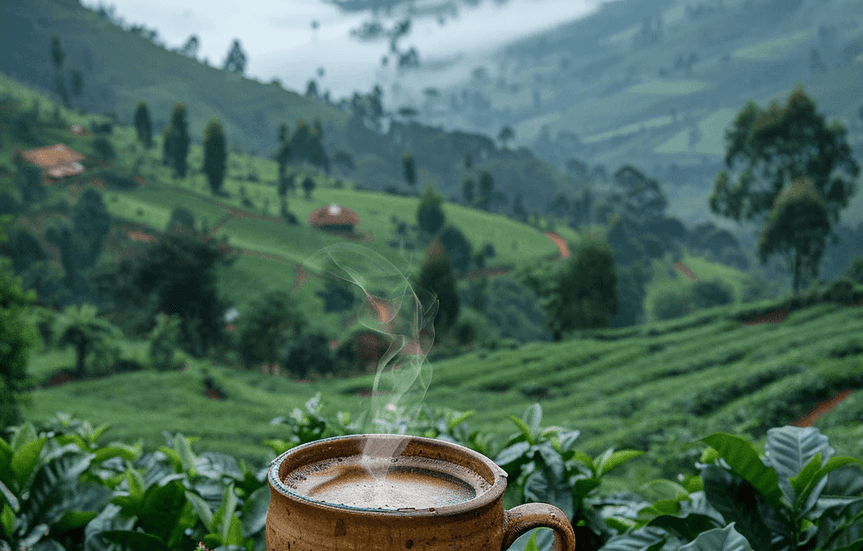




Burundi National Anthem
Cultural Life
Cultural milieu
Burundi's cultural life is rich with traditions rooted in music, dance, and social practices. Drumming, particularly the karyenda drumming, and traditional dances are central to Burundian culture, with the Royal Drummers of Burundi being internationally recognized. Storytelling and oral literature are also important, while crafts like basket weaving are popular artistic expressions. Socially, Burundi is known for its strong sense of community, with a focus on communal living and cooperative farming.

Daily life and Social customs
Burundi's daily life is deeply rooted in its rich cultural heritage, with a strong emphasis on communal living, traditional music, and dance. Agriculture is the primary occupation for most Burundians, and traditional crafts like basket weaving are also important aspects of the culture. Social customs emphasize family and community support, with a strong tradition of storytelling and oral history.


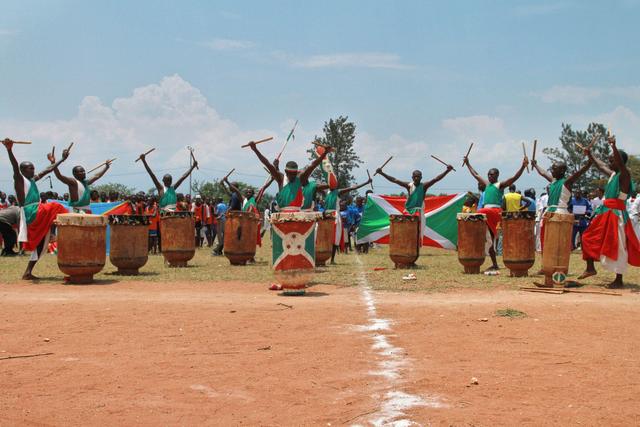


Cuisines
Burundi's traditional cuisine is characterized by simple, hearty dishes that often feature plantains, beans, cassava, and locally sourced vegetables. Staples like Ugali (a porridge made from cassava or maize flour) and Renga Renga (a spinach and peanut stew) are commonly enjoyed. Small, locally caught fish like Ndagala and Mukeke are also popular, often served grilled or steamed.
Key Dishes and Ingredients:
- Agatoke: A plantain-based dish, often served with vegetables and sometimes spaghetti or peas.
- Isombe: A dish made from cassava leaves, often cooked with other vegetables and sometimes dried fish.
- Ibiharage: A red kidney bean stew, a common and beloved dish.
- Renga Renga: A stew made from potato leaves and peanuts, sometimes with tomatoes and dried fish.
- Ubugali: A stiff porridge made from maize or cassava flour, a staple side dish.
- Ndagala/Mukeke: Small, locally caught fish, often served grilled, steamed, or fried.
- Brochette: Skewers of grilled meat, often goat, a popular dish in Burundi.
Drinks:
- Urwarwa: Homemade banana wine, often enjoyed during celebrations.
- Impeke: Beer brewed from sorghum, sometimes drunk through straws.





Music
In 2025, Burundian music is a dynamic blend of tradition and modernity, with iconic elements like drumming and vocal chants still central to cultural celebrations, while contemporary genres such as hip-hop, reggae, pop, and R&B gain popularity among younger generations. Artists like Safi Madiba, Big Fizzo, Khadja Nin, B-Face, and The Burundi Drummers Collective are leading a musical evolution that merges local rhythms with global styles. The rise of digital platforms has expanded the reach of Burundian music, fostering international collaborations and boosting global recognition. This vibrant musical landscape not only showcases Burundi’s rich heritage but also highlights its growing influence on the African and global music scenes.
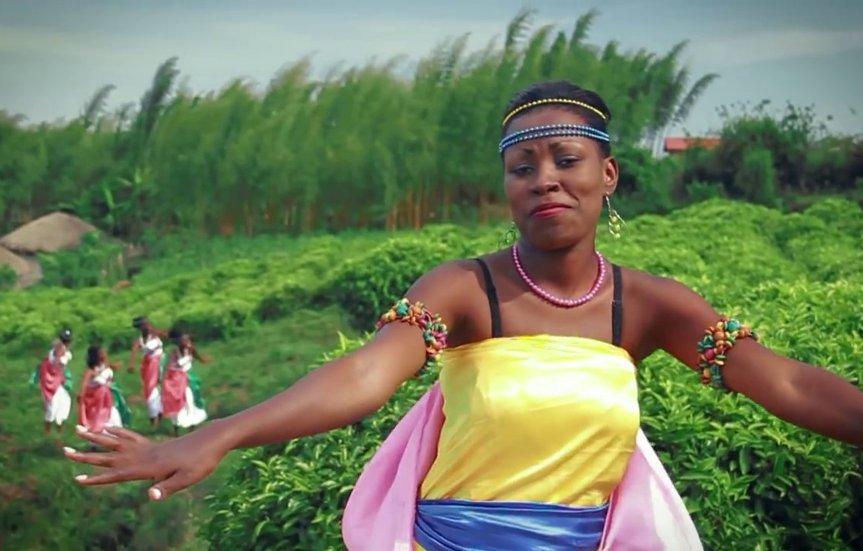
Picture Courtesy
The Arts
In 2025, Burundi’s art scene is a vibrant reflection of its rich cultural heritage and evolving contemporary identity. Traditional crafts like basket weaving, pottery, Imigongo painting, and drumming continue to thrive, while modern artists increasingly embrace visual arts, street art, theatre, and mixed media to explore themes of identity, social justice, and national healing. Burundian theatre is becoming more interactive, often tackling complex issues through audience engagement. Urban centers like Bujumbura are seeing a rise in graffiti and public art as forms of youth expression. Events such as the Bujumbura Arts Festival highlight both traditional and modern artistic talents, giving local artists international exposure and fostering cross-cultural collaboration. Overall, the arts in Burundi serve as a dynamic force for cultural preservation, innovation, and social transformation.





People
Ethnic Groups
In Burundi, the two main ethnic groups are the Hutu and the Tutsi, with the Hutu forming the majority (around 85%) and the Tutsi being a significant minority (around 14%). The Twa, a smaller group, make up about 1% of the population. Main Ethnic Groups:
- Hutu: The majority group, traditionally agriculturalists.
- Tutsi: A historically dominant minority group, traditionally pastoralists.
- Twa: Indigenous people, believed to be the oldest culture in the area, traditionally hunter-gatherers.
Historical Context:
- The Hutu and Tutsi have a complex history, with the Tutsi traditionally holding a higher social status.
- This historical dynamic has led to periods of ethnic tension and conflict, including violence in the 1990s.
- The Arusha Accords in 2000 established a power-sharing agreement between the Hutu and Tutsi.
Other Groups:
- There are also small numbers of Europeans and South Asians.
- Additionally, some Swahili-speaking people from Tanzania and the Democratic Republic of Congo reside in Burundi.





Religions
Religion plays a central role in Burundian society, shaping its cultural, social, and political life. Christianity is the dominant faith, practiced by 60–70% of the population, with Catholicism and various Protestant denominations influencing education, healthcare, and public life. Islam, practiced by 10–15% of the population, is mainly found in urban and border regions, contributing significantly to trade and business. Despite occasional tensions, Burundi is known for its religious tolerance, with peaceful coexistence between Christians and Muslims and active interfaith cooperation. Religion has served as a unifying force, especially in the post-conflict period, promoting peace, reconciliation, and national cohesion.
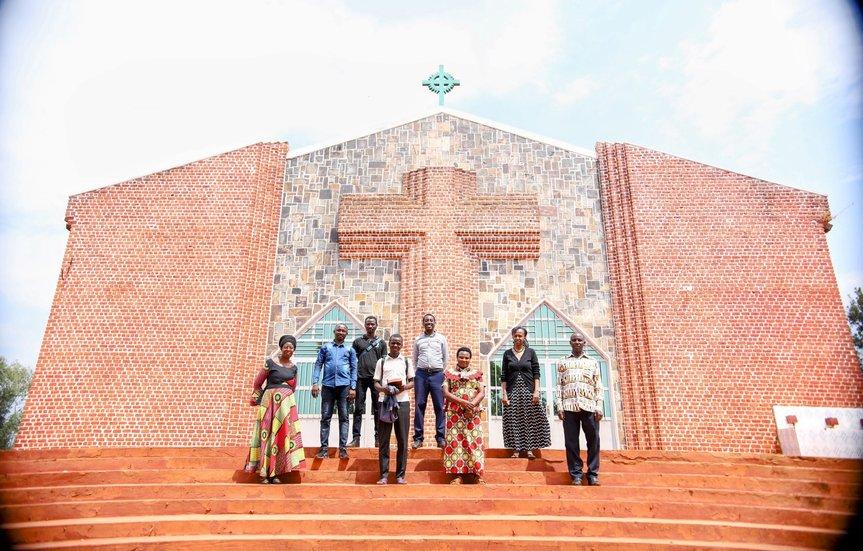




Settlement Patterns
Burundi's settlement patterns are predominantly rural, with most of the population engaged in subsistence farming focused on food crops and livestock. Urban areas are limited, with only 7% of the population living in cities, and the capital, Bujumbura, exhibiting high urban primacy and projected to reach 4 million residents by 2045. While Bujumbura remains the dominant urban center, smaller towns and secondary cities are gradually urbanizing. The country's mountainous and plateaued terrain, especially in the western highlands, supports dense populations due to its cooler climate and fertile soils, making these regions highly suitable for agriculture and attractive for settlement.

Demographic Trends
Burundi’s demographic landscape is characterized by rapid population growth, with about 14.39 million people and a high growth rate of 2.44% annually. The population is very young—44% under age 15—with a high dependency ratio of 87 dependents per 100 working-age adults and a median age of just 16.4 years. Fertility remains high at 4.7 births per woman, while child mortality rates are still significant and life expectancy averages 64 years. Urbanization is low, with only 14.9% living in cities, but population density is extremely high, putting pressure on land and resources. This youthful, rapidly expanding population presents opportunities for economic growth but also demands substantial investment in education, healthcare, family planning, and infrastructure, especially in rural and urban areas, to ensure sustainable development and improved living standards.
Touristic cities
Burundi's major tourist cities include Bujumbura, Gitega, and Rumonge. Bujumbura, the former capital and largest city, offers attractions like Lake Tanganyika, Rusizi National Park, and vibrant markets. Gitega, the current capital, is home to the National Museum and the tomb of King Ntare V. Rumonge, on Lake Tanganyika's shores, is known for its beaches and natural beauty.
Bujumbura
Location: Situated on the northeastern shore of Lake Tanganyika.
- Attractions:
- Lake Tanganyika: Offers stunning views, lakeside cafes, and restaurants.
- Rusizi National Park: Features hippos, crocodiles, and diverse birdlife along the Rusizi River.
- Markets: Explore vibrant markets like the Bujumbura Central Market.
- Presidential Palace: A historical landmark.
- Living Museum: Showcases traditional and contemporary arts and crafts.
- Nightlife: A lively hub with numerous bars and clubs.
- Food: Known for its unique cuisine with French influence.
- Activities: Enjoy boat trips on Lake Tanganyika, explore the park's wildlife, and experience the city's culture and nightlife.
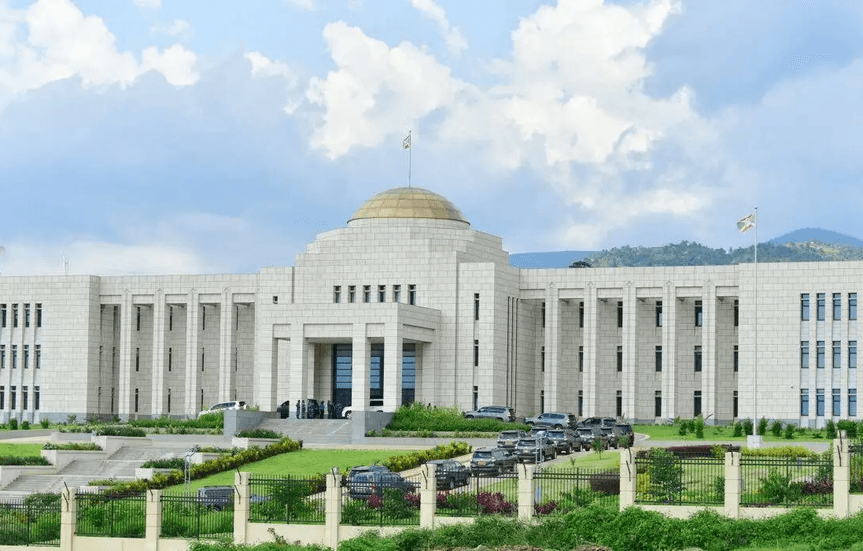


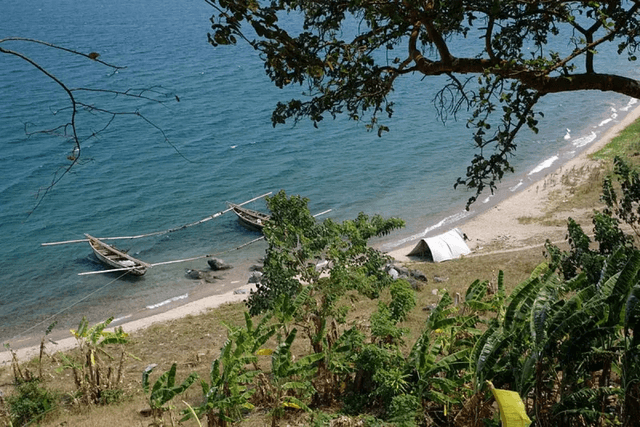

Gitega
Location: Burundi's current capital city.
- Attractions:
- National Museum: Houses artifacts and historical items from Burundi's past.
- Tomb of King Ntare V: The final resting place of Burundi's last king.
- Activities: Visit the National Museum and explore the city's historical sites.


Rumonge
Location: Situated on the shores of Lake Tanganyika, in the southern part of Burundi.
- Attractions:
- Beaches: Known for its beautiful beaches and landscapes.
- Activities: Enjoy water activities, relax on the beaches, and explore the surrounding natural beauty.

Other Notable Tourist Destinations
Karera Waterfalls: Located in the south of Burundi, these waterfalls are a breathtaking natural landmark.
Kibira National Park: Offers a tropical forest experience with opportunities for wildlife spotting, including chimpanzees.
Ruvubu National Park: Burundi's largest national park, known for its diverse wildlife and virgin nature.
Gishora Drum Sanctuary: A cultural site where visitors can experience traditional drumming and performances.
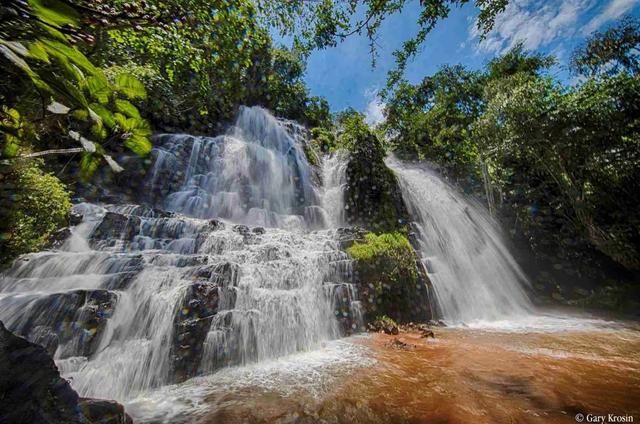



Accommodation
Guest Houses & B&Bs
- Maison D’Accueil (Bujumbura): A cozy, garden‑surrounded guesthouse offering home‑cooked meals and a warm, intimate setting for around $20–30/night.
- Amahoro Guesthouse (Gitega): Simple, clean rooms with hearty local breakfasts (~45,000 BIF ≈ $16/night).
These options are ideal for travelers seeking authentic, low‑cost, and culturally immersive stays.


Urban Hotels
- Burundi Palace Boutique Hotel (Bujumbura): Modern rooms with balconies, rooftop restaurant, Wi‑Fi included. Rates around $115–123/night.
- Martha Hotel (Bujumbura): 3‑star, pool, gym, shuttle; ~$116/night.
These mid‑range hotels strike a balance between comfort, amenities, and affordability.


Resorts & Lakeside Retreats
- Dolce Vita Resort Hotel: Pool, serene garden setting in Bujumbura; rated “good” (~$70/day).
- Club du Lac Tanganyika: Luxury lakeside resort with private beach, pool, tennis courts; premium experience.
- Saga Beach Resort: Eco‑friendly, relaxed bungalows by Lake Tanganyika—popular for beach getaways.
These cater to travelers seeking scenic comfort and lakeside leisure.



Eco Lodges & Camping
- Kigwena Reserve Eco‑Camp (Rumonge): Safari‑style tents near forests, perfect for birding and nature immersions.
- Rusizi Tented Camp (Rusizi National Park): Riverside tents with guided excursions, ideal for wildlife enthusiasts.
- Kayanza Forest Lodge: Rustic eco‑lodge in tea‑growing highlands, blends cultural-stay and trail access.

Lodges & Mid‑Range Retreats
- Kiriri Garden Hotel: Upscale hotel with pool, spa, modern rooms—luxury city haven.
- Roca Golf Hotel: Overlooks golf course, includes spa, restaurant, outdoor pool—appeals to business travelers & golfers.
- Best Outlook Hotel: Hilltop retreat in Bujumbura offering panoramic city/lake views and a pool.



Requirements for visa
Documents required for the application process
To enter Burundi in 2025, most foreign nationals need a visa, which can be obtained upon arrival or by applying in advance at a Burundi embassy or consulate. Required documents generally include a valid passport, passport-sized photos, proof of travel arrangements, and a Yellow Fever vaccination certificate. Specific requirements may vary based on nationality and purpose of visit.
General Requirements:
- Passport: A passport valid for at least six months beyond the intended stay, with at least two blank visa pages.
- Visa Application Form: A completed and signed application form.
- Passport Photos: Two recent passport-sized photos.
- Proof of Travel: A copy of round-trip tickets or itinerary.
- Yellow Fever Certificate: Proof of Yellow Fever vaccination.
Additional Requirements:
- Letter of Invitation: If traveling for business, an invitation letter from a Burundi-based company may be required.
- Proof of Accommodation: Hotel bookings or other proof of lodging.
- Proof of Funds: Evidence of sufficient financial means to support your stay.
- Residence Permit: Non-citizens of the country of application may need to provide proof of legal residence.
Specific Considerations:
- Visa on Arrival: Some nationalities may be eligible for a visa upon arrival in Burundi.
- Visa Exemptions: Certain nationalities are exempt from visa requirements for short stays, often for tourism purposes.
- Online Application: Some embassies or consulates may allow or require online visa applications.
Where to Apply:
- Burundi Embassy or Consulate: Apply at the nearest Burundi embassy or consulate in your country of residence.
- Online: Some embassies or consulates may offer online application portals.
- Visa on Arrival: Check if your nationality qualifies for a visa upon arrival at the port of entry.
Important Notes:
- Check for Updates: Visa requirements can change, so it's crucial to verify the latest information with the Burundi embassy or consulate before traveling.
- Processing Time: Visa processing times can vary, so apply well in advance of your intended travel date.
- Travel Advisories: Be aware of any travel advisories or warnings for Burundi issued by your government.
Economy
Agriculture
Agriculture is the backbone of Burundi’s economy, employing 90% of the workforce and contributing over 40% to GDP. The sector is largely based on subsistence farming, with key export crops like coffee and tea providing vital foreign exchange. Despite its importance, agriculture faces major challenges including low productivity, land fragmentation, limited access to finance, and the impacts of climate change. Government and partner initiatives—such as hydro-agricultural projects, the PADFIR financial inclusion program, and the Plantwise plant health support program—aim to modernize and support the sector. However, deforestation and environmental degradation pose additional threats. Sustainable and climate-resilient practices are crucial for ensuring the long-term productivity, food security, and economic stability of the country.
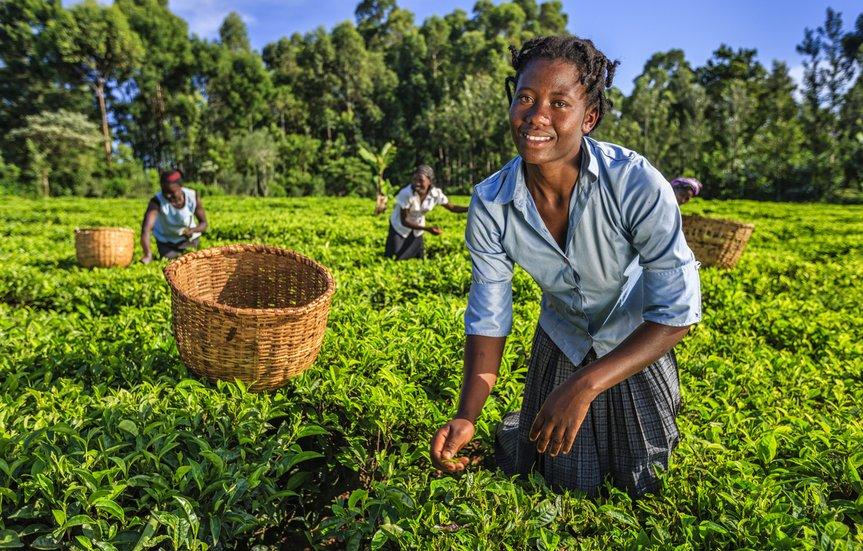
Forestry and Fishing
Burundi's forestry and fishing sectors are essential to its economy, environment, and food security, but both face significant challenges. Forests provide crucial ecosystem services like carbon sequestration and water regulation, yet are threatened by deforestation caused by agricultural expansion, fuelwood collection, and unsustainable logging. Similarly, Lake Tanganyika supports many livelihoods through fishing, but overfishing and destructive practices risk depleting fish stocks and harming biodiversity. In response, the government and partners have launched initiatives such as forestry management projects, the Fisheries Development Project, and the Samaki Centre to promote sustainable practices. Continued efforts are needed to ensure the long-term sustainability and productivity of these vital natural resources.

Resources and Power
Burundi relies heavily on biomass, particularly firewood and charcoal, as its primary energy source, especially in rural areas. Despite having significant potential for hydroelectric power and other renewables like solar, wind, geothermal, and peat, electricity access remains very low due to limited infrastructure and past civil unrest. Most of the country’s electricity is generated from hydropower, while petroleum products are fully imported, although there are potential reserves in Lake Tanganyika and the Rusizi Valley. Additionally, Burundi holds unexploited mineral resources such as nickel, vanadium, uranium, phosphates, and minor quantities of tin, tungsten, niobium, and tantalum, primarily mined by artisanal operations. Efforts are ongoing to develop renewable energy and responsibly tap into these natural resources.

Manufacturing
Burundi's manufacturing sector is small and underdeveloped, contributing about 15% to GDP in 2019, with modest growth projections. The sector faces significant challenges, including limited diversification, poor infrastructure, restricted access to finance, a skills gap, and dependence on traditional exports and foreign aid. Despite these issues, there is growth potential through export diversification, investment, and infrastructure improvements. Positive developments include government reforms, international support, and the upcoming completion of a new hydropower plant in 2025, which is expected to enhance energy reliability and boost industrial output. Addressing these challenges is essential for the sector's long-term development and economic resilience.

Finance
Burundi’s finance sector in 2025 remains underdeveloped yet shows signs of cautious modernization and inclusion. The banking industry—comprising roughly 14 commercial banks—is strengthening, with net interest income projected at around US $401 million and capital adequacy ratios near 20%. However, only a small fraction of adults hold bank accounts, while microfinance cooperatives (COOPECs, CECM) and specialized institutions like the Youth and Women’s Investment Banks are crucial in extending credit to rural communities, women, and entrepreneurs. The central bank and IMF are pushing for financial-sector reforms—such as asset quality reviews, enhanced supervision, and payment system digitization—to improve stability, reduce exposure to sovereign risk, increase financial inclusion via mobile money and QR codes, and deepen monetary policy effectiveness. By fostering digital financial services and regulatory modernization, Burundi aims to lay the groundwork for a more inclusive, resilient, and growth-supportive financial architecture.
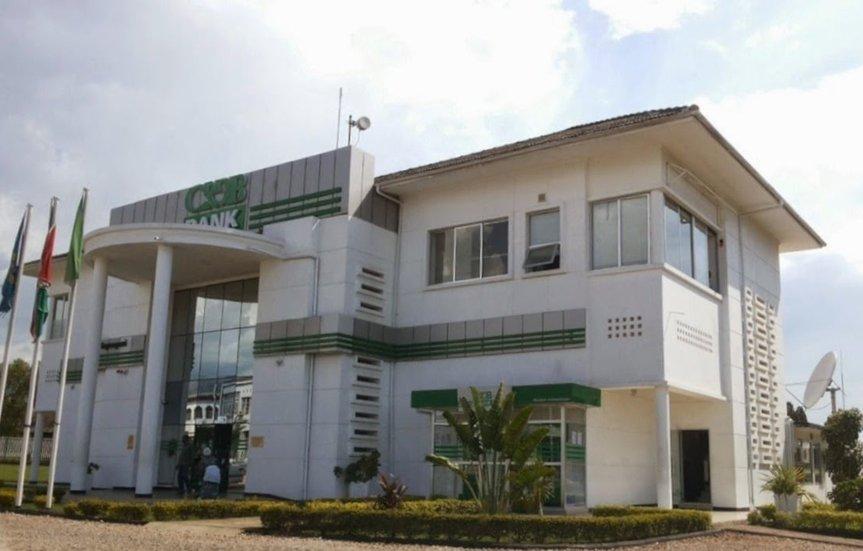
Trade
In 2025, Burundi’s trade sector remains challenged by a persistent trade deficit, driven by limited exports and heavy reliance on imports such as food, fuel, and construction materials. Coffee and tea continue to dominate export earnings, with Switzerland and Pakistan among key export destinations, while Belgium, Uganda, and Rwanda serve as major trading partners. The government is making efforts to diversify exports by tapping into resources like nickel, rare earth elements, and gold, and is enhancing regional integration through partnerships with the EAC, COMESA, SADC, and AfCFTA. Infrastructure development and payment system modernization are also underway to facilitate trade and improve efficiency. With GDP projected at $6.7 billion, inflation remains a concern due to price surges in essential goods, emphasizing the need for stronger trade frameworks and private sector support.
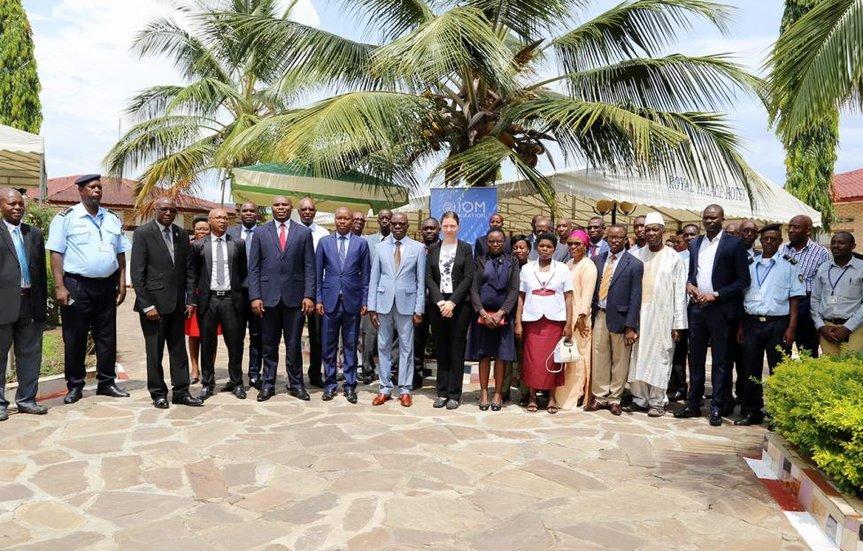
Labor and Taxation
Burundi’s labor force is predominantly agricultural, with around 90% of workers engaged in subsistence farming. Legal provisions allow for union formation, though government-union relations have been historically strained. Since the 2005 constitution, women have increasingly joined the workforce, particularly in public and development sectors. The country employs a progressive income tax system, ranging from 0% to 30% based on earnings, alongside corporate taxes, VAT, import duties, and social security contributions. Tax administration is managed by the Office Burundais des Recettes (OBR), which oversees collection and enforcement.
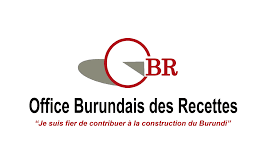
Transportation
In 2025, Burundi’s transportation sector remains underdeveloped, with limited public transit and a heavy reliance on private bus services for both domestic and cross-border travel to neighboring countries like Tanzania, Uganda, and the DRC. Only about 10% of the country's 12,300 km of roads are paved, and public transport within cities is scarce, forcing residents to depend on costlier private options. Lake Tanganyika supports limited ferry services, while Bujumbura International Airport serves as the main hub for air travel. Ongoing challenges include rising fuel prices, inadequate urban transport, and travel advisories linked to political and security concerns. However, efforts are underway—supported by the World Bank—to improve climate-resilient road infrastructure and build institutional capacity, notably along key routes like National Road No. 3 connecting Burundi to Tanzania.





Telecommunications
In 2025, Burundi's telecommunications sector is undergoing gradual development amid persistent challenges. Internet penetration remains low at around 12.5%, with most users accessing the internet via mobile networks, as fixed broadband is still limited. Efforts are focused on expanding 4G coverage, especially in rural areas, through initiatives like the Broadband Burundi 2025 project. Mobile connectivity is more widespread, with over 8 million active connections (56.6% of the population), and mobile money services such as Ecocash and Lumicash are widely used. Regulatory reforms led by ARCT aim to improve market oversight, combat counterfeit devices, and ensure quality standards for telecom equipment. The government is also promoting competition among operators and preparing for future technologies like 5G, while working with the East African Community to harmonize regional roaming charges. Despite progress, high costs, limited digital literacy, and infrastructure gaps remain key obstacles to broader connectivity.

